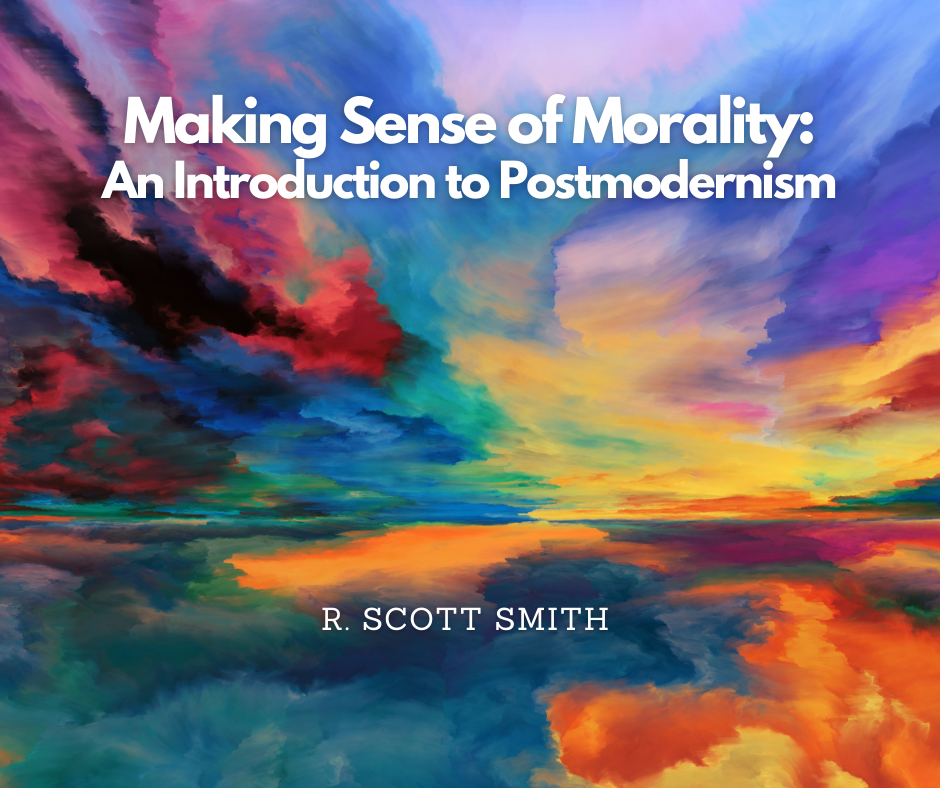Book Review of Wade Mullen’s Something’s Not Right: Decoding the Hidden Tactics of Abuse and Freeing Yourself from Its Power
/In a dark time in my life, I found myself angered, hurt, and heartbroken by the type of experiences that I had encountered in a previous institution. Like many people, I had been hurt in church before. But I never experienced as much difficulty in finding healing. Drs. David and Marybeth Baggett were God-sent to help me find a pathway to healing. They ministered to me and expressed their concern for the hurt that I was feeling. Marybeth mentioned a couple of books that I might find interesting. One was a work by Wade Mullen entitled Something’s Not Right: Decoding the Hidden Tactics of Abuse and Freeing Yourself from Its Power. The book proved extremely beneficial to me as it explained the hurt that I had experienced. I realized that I was not alone. For the remainder of this article, I would like to provide a review of Mullen’s work. First, I will offer a summary of Something’s Not Right, then I will identify the strengths of the book, before concluding with some personal reflections.
Summary
Wade Mullen writes for those who have suffered from institutional abuse and for those who think they may be currently experiencing it. Mullen writes from his own dealings with it, having suffered from his own encounters with institutional abuse. Mullen reflects that he knew that something was not right (hence, the title of the book), but neither he nor his family had suffered from sexual or physical abuse.[1] Yet it was clear to him that he and his family had suffered some form of abuse. He later realized that he had suffered from institutional abuse—that is, suffering from the oppressive and bullying nature of organizations that permit narcissistic dictators to emotionally harm those under their care.
Mullen draws his argument from the field of impression management and the research of Erving Goffman. Goffman defines impression management as the process of “creating, influencing, or manipulating an image held by an audience.”[2] Making a comparison to a stage play, the author contends that impression management tactics take on an abusive and unethical nature when “the front-stage persona is used to hide truths that ought not to be hidden.”[3] The actor(s) adjust the performance when problems arise to keep the audience engaged but never attempt to resolve the inner problems, or actors, causing the abuse. Everything becomes much more about image than character.
Mullen further inquires, why do institutions and individuals, though they may have begun with good intentions, operate in such a manner? The answer is simple: power. Mullen contends, “The chief desire of abusive individuals and organizations is to attain or retain power—most often the kind of power gained and held firm through deception.” Through the remainder of the book, Mullen describes the tactics by which abusers use impression management to attain or retain their power. He identifies the use of charm, dismantling the victim’s internal and external world, intimidation used to silence victims, walls of defense,[4] disingenuous apologies to save the image of the abuser or institution,[5] and demonstrations.[6]
Strengths
Mullen’s book is a much-needed resource due to the rising number of institutional cases of abuse. His book features numerous strengths. But for the sake of space, we will consider three. First, Mullen provides compelling examples of institutional abuse. Some may wonder whether institutional abuse even, exists, but, in a clear and winsome fashion, Something’s Not Right exposes the problem of institutional abuse and offers examples to show its malevolent practice. In the pages of Mullen’s book, the reader may find oneself reflecting on personal examples of the very practices that Mullen describes. The book is relevant for those who have suffered from abuse in the church, universities, businesses, and other institutions. Earnest readers will be left with a clear depiction of the reality of institutional abuse.
Second, Mullen exposes the methodology of institutional abuse. The illustration of a stage play is quite telling as it covers the array of organizations that may be guilty of abuse. Quite to the point, institutions that permit abuse do not desire to expose the interior problems. Some may conclude that the institution does not want to expose skeletons in the closet. Yet when those skeletons are permitted to continue to harm, they need to be exposed if institutional healing is to take place, the abuse is to be eliminated, and the victims healed. Abusive institutions are more concerned with image than character.
Finally, the book diagnoses the root moral problem behind institutional abuse. Simply put, the assignment of primacy to self-serving power drives people within institutions to abuse individuals. Such power also drives institutions to permit such behavior as the institution desires to perpetuate its influence in the community. Unrestrained power is not concerned with a utilitarian ethic, neither is it concerned with the wellbeing of others. Rather, Mullen shows that those whose primary or only ethical standard is acquisition and consolidation of power will only be concerned with what others can do to help retain their status or position. Readers should be driven to promote transparency within the establishments with which they are associated. Institutions that have nothing to hide will not mind sharing their internal workings.
Reflections
Two critiques can be offered at this point. First, it is possible that genuine repentance could come while trying to salvage the institution in question. While I fully agree with Mullen’s concerns about institutions trying to sweep former events under the rug, I also believe there comes a point that the institution and person must move on from events that occurred. While the abusive situation should never be forgotten, rehashing scandals of the past can prove harmful to the person who was victimized. Particularly for those suffering from PTSD, continual discussions of past harms and abuses can prove detrimental to the victims, just as much as not discussing them enough. Delicacy and discernment are the needed antidote.
For instance, with the greatest of intentions, I continued talking to a couple who suffered from mental impediments about safeguarding themselves from people who tried to take advantage of them financially. They had previously been persuaded to buy a computer that was well out of their price range and, quite honestly, was not worth the price. While my intentions were noble, my continued discussions brought back the pain of their victimization. Thus, an institution needs to do everything possible to make amends for abusive behaviors and resolve systemic problems permitting abuse to occur. But there might come a point at which further dwelling on past wrongdoings reaches a point of diminishing return.
Second, Mullen’s work raises the matter of forgiveness. It is not his main focus here, although he does end the book with a section on it. It obviously is a highly important matter, as Mullen would be the first to agree. One issue concerning forgiveness is what happens if the guilty party never asks for forgiveness? An abuse victim’s exit from the situation of abuse is important, but what about this matter of forgiveness when there isn’t repentance? Such a scenario is, sadly, not uncommon. Abusers more often make excuses for their abusive behaviors than come clean, repent, and ask for forgiveness.
What can an abused person do spiritually if reconciliation with the abuser doesn’t happen? The biblical answer is that a forgiving stance is still required. Jesus pleaded for the forgiveness of those who were crucifying him (Luke 23:34). This kind of forgiveness does not mean that the abuser and abusive systems are never held accountable for his or her actions. Abusive institutional and systemic systems must be corrected and reformed, as evidenced by Jesus’s overturning of the tables in the temple. Again, forgiveness most certainly does not indicate that a person remains in an ongoing abusive situation. Remember, Jesus told the disciples to wipe the dust off their feet while leaving a town that rejects them (Luke 10:10-11).
Still, forgiveness is vitally important, and it is just as much about one’s walk with God and peaceful mindset as it is for the guilty party. As someone once said, “Holding a grudge is like trying to poison another by drinking the poison yourself.”
In the context of chronic and acidic abuse, however, it is also important to remember that abusers, especially within religious contexts, are often adept at exploiting the rhetoric of forgiveness and “moving on” to conceal their culpability, avoid accountability, and sometimes even perpetuate abuse. So while we must endeavor to retain a forgiving stance, forgiving others as we have been forgiven, we must also resist disingenuous efforts by abusers to wrap the cloak of religious legitimacy around efforts to evade responsibility and continue mistreatment under a new, and perniciously religious, guise.
Conclusion
Wade Mullen’s book Something’s Not Right is a must-read. I give the book five stars out of five. The book effectively illustrates the abusive tactics found in unhealthy organizations while also recognizing the importance of spiritual healing. More cases of institutional abuse are being revealed in churches, universities, and denominations. To counter the abuse, one needs to first recognize unhealthy patterns found within institutions as well as practices by abusive individuals. Mullen’s work will prove to be an essential tool in doing just that. Regardless of whether you have suffered abuse, suspect abuse, or desire to know more about institutional abuse, Mullen’s book is a tour de force on the topic. I would suggest supplementing Something’s Not Right with Diane Langberg’s work Redeeming Power. Additionally, I would also recommend Os Guinness's book God in the Dark along with In Search of a Confident Faith, co-written by J. P. Moreland and Klaus Issler, to learn more about overcoming barriers to faith after being victimized by abusive power structures.
About the Author
Brian G. Chilton is the founder of BellatorChristi.com, the host of The Bellator Christi Podcast, the author of the Layman’s Manual on Christian Apologetics, and a Ph.D. Candidate of the Theology and Apologetics program at Liberty University. He received his Master of Divinity in Theology from Liberty University (with high distinction); his Bachelor of Science in Religious Studies and Philosophy from Gardner-Webb University (with honors); and received certification in Christian Apologetics from Biola University. Brian is a member of the Evangelical Theological Society and the Evangelical Philosophical Society. Brian has served in pastoral ministry for nearly 20 years and currently serves as a clinical chaplain, an editor for the Eleutheria Journal, and an Associate Editor for MoralApologetics.com.
https://www.amazon.com/Laymans-Manual-Christian-Apologetics-Essentials/dp/1532697104
[1] Wade Mullen, Something’s Not Right: Decoding the Hidden Tactics of Abuse and Freeing Yourself from Its Power (Carol Stream, IL: Tyndale Momentum, 2020), 1.
[2] Ibid., 9; Erving Goffman, The Presentation of Self in Everyday Life (New York, NY: Anchor, 2008).
[3] Mullen, Something’s Not Right, 12.
[4] The four walls of defense include denials, excuses, justifications, and comparisons. Ibid., 102.
[5] This includes the unwillingness to condemn the abuser’s actions, appeasing the situation, excusing behavior, justifying one’s own actions by claiming that the victim in some ways bears the burden of guilt, self-promotion, and sympathy. Ibid., 149.
[6] Demonstrations include actions that does only what is necessary to survive that scandal rather than making amends for the abuse that occurred. Ibid., 162.





































































